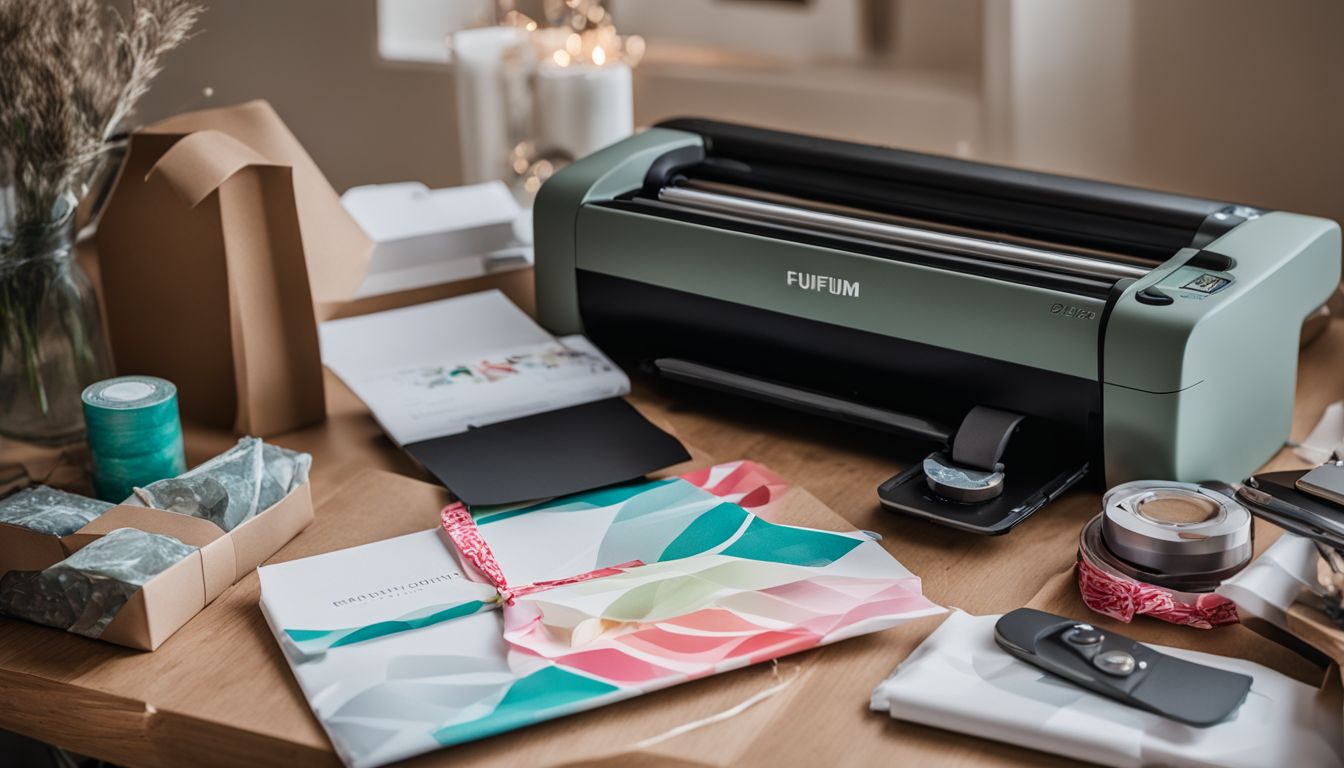
Published on:

Published on:
Wrapping gifts can be a tricky task that leaves many seeking an easier way. Enter Little ELF, the innovative gift wrap cutter that’s capturing attention nationwide. Our blog post will take you through the story of Little ELF and its founder, showing how this simple tool turned into a multimillion-dollar business.
Ready to get wrapped up in success? Keep reading!

Moving from the broader picture to a more focused lens, Little Elf springs from the innovative minds of college students Bryan Perla and Ayaan Naqvi. These two bright individuals looked at the common task of gift-wrapping and saw not just ribbons and paper but an opportunity for improvement.
Their invention, the Little Elf gift wrap cutter, emerged as a simple yet effective tool designed to make cutting wrapping paper quick, straight, and safe. At Stanford University, where ideas flourish and entrepreneurship thrives, Bryan Perla led this venture with creativity at its core.
The path to success was marked by dedication and hard work. While still in school, they transformed their idea into a tangible product that caught consumer attention for its ease of use and efficiency.
This wasn’t just another university project; it was a step towards revolutionizing how people tackle gift-wrapping worldwide. The duo’s journey reflects the essence of innovation – finding solutions to everyday problems in ways that resonate with users across various customer segments.

Little Elf captured everyone’s attention on Shark Tank. The founder pitched the wrapping paper cutter with confidence and charm.
This journey not only secured Little Elf a deal with Lori Greiner but also set the stage for exponential growth by leveraging networks like Amazon Prime and initiating effective marketing campaigns post-Shark Tank appearance.
Diving into Little Elf’s financial landscape reveals how this innovative company turned wrapping paper cutting from a chore into a lucrative business. Here’s a deep dive into their revenue streams and the sales numbers that paint a picture of success.
| Revenue Stream | Description | 2023 Sales Figures (Est.) |
|---|---|---|
| Direct Online Sales | Sales through the company’s official website. | $800,000 |
| Retail Partnerships | Collaborations with major retailers to sell Little ELF products in stores. | $600,000 |
| Bulk Orders for Corporate Gifting | Corporate deals for bulk purchasing, often around the holiday season. | $400,000 |
These streams have not just diversified how Little ELF generates income; they’ve also maximized their market reach. The use of Shark Tank in their marketing strategy played a crucial role, anchoring the brand’s story in the minds of consumers and investors alike. Such a strategy, intertwined with direct, retail, and corporate sales avenues, has propelled Little ELF towards its estimated $2 million net worth in 2024.
Now, let’s shift our focus to how the brand has expanded and the impact it’s created in the market space.
Little Elf caught a big wave after striking a deal with Lori Greiner on Shark Tank. This move opened doors to new opportunities, leading to a broadened product line that now includes variations of the original cutter and related accessories.
Aimed at tapping into diverse customer segments, these expansions have significantly increased revenue. With an eye for innovation, Little Elf has skilfully used their Shark Tank appearance in marketing materials, boosting brand recognition and customer trust.
Their impact on the market is undeniable. By establishing partnerships for retail distribution and bulk corporate orders, Little Elf has not only widened its reach but also strengthened its position in the competitive landscape of cookies and gifting solutions.
The company’s strategic approach to leveraging internet service provider channels and electronic communications has further propelled its growth, making it a notable player in e-commerce sales platforms like Amazon’s.
Through targeted marketing efforts—utilizing user profiles and advanced data analytics—Little Elf continues to capture hearts (and taste buds) across America, while sustaining impressive year-over-year growth.
Estimating Little Elf’s net worth at $2 million in 2024 shows a significant leap in value. This growth isn’t just about good luck; it reflects smart moves and strategic decisions. From clever product design to leveraging their Shark Tank appearance, every step has been towards building this impressive figure.
Kevin O’Leary and Barbara Corcoran saw potential early on, and their backing added not just funds but also credibility. The net worth today is a clear sign of profitability, with an upward trend that promises even more.
The success story behind this valuation involves more than just appearing on TV or getting investment checks. It’s about how the company used these opportunities to maximize its market impact.
They turned their Shark Tank moment into a key part of their marketing materials, attracting attention far beyond the initial broadcast viewership. Expansion efforts paid off as well, reaching new customers and entering different markets without losing sight of what made them special in the first place – innovation and customer satisfaction are always at heart.
This analytic look isn’t merely numbers but a testament to strategic planning paying off big time for Little Elf’s future prospects.
Little ELF’s journey from a college project to a $2 million net worth powerhouse is nothing short of inspiring. The founders, Bryan Perla and Ayaan Naqvi, harnessed their creativity and Shark Lori Greiner’s investment to revolutionize gift wrapping.
Their story proves that with innovation, strategic partnerships, and effective marketing, even the simplest idea can turn into a booming business. Little ELF’s success lights up the path for aspiring entrepreneurs everywhere – showing that big dreams do pay off.
Discover how another innovative product made its mark in the business world by exploring our analysis on SnapClips’ net worth.
Get ready for a surprise – as of 2024, Little Elf has an impressive valuation that reflects its success in the market. Thanks to smart decisions and innovative products, they’ve really set the bar high.
Kevin O’Leary wasn’t just a mentor; his guidance was like striking gold. With his sharp insights and business acumen, he helped steer Little Elf towards lucrative opportunities, boosting their growth significantly.
Yes! Shopping at Little Elf is super easy – whether it’s through their website or checkout process, your credit card is all you need. They’ve made sure paying is quick and hassle-free.
Here’s the deal – using PNG and WebP image file formats ensures that all the cool merchandise looks crisp and clear on any device. This attention to detail enhances customer experience, making shopping more enjoyable.
Little Elf knows the game well – they don’t just slap on a market price or suggested retail price without thought. They analyze what makes sense for their customers, often offering deals that are too good to pass up while ensuring quality isn’t compromised.